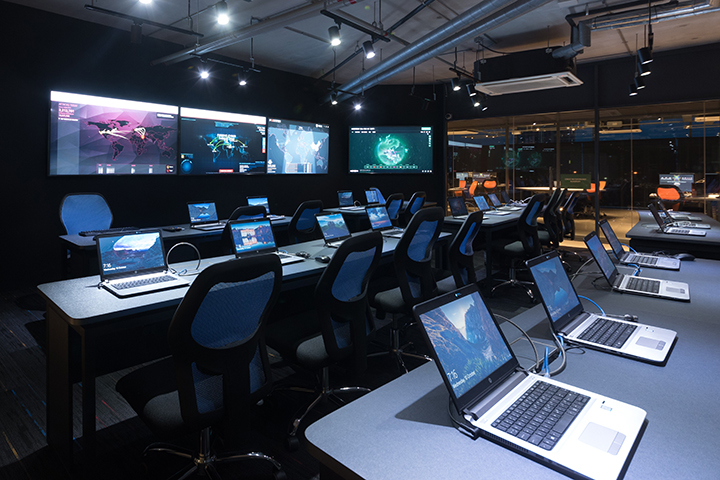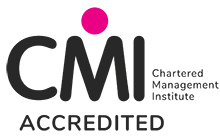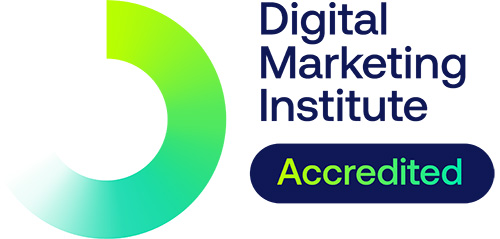Course Details

Dual Degree
APU-DMU Dual Degree Programme
Accreditation
More than just a Marketing Management Degree
Requirements
Entry Requirements
- 2 Passes in STPM with a minimum Grade C (GP 2.0) and a Pass in English and Mathematics at SPM Level or its equivalent.
- 2 Passes (Grade A-D) in A-Level with a Pass in English and Mathematics at SPM/ O-Level/ IGCSE or its equivalent.
- 5 Grade B’s in UEC with a Pass in Mathematics and English.
- Passed Foundation programme (minimum CGPA of 2.0).
- Successful completion of the APU Diploma or
- Successful completion of studies in another recognised institute with academic credits equivalent to Level 1 of an Honours Degree
Note: The above entry requirements may differ for specific programmes based on the latest programme standards published by Malaysian Qualifications Agency (MQA). The qualification and entry requirements for the programmes will be determined based on the "Comparison List of Equivalency of International Qualifications with SPM (O-Levels equivalent) and STPM (A-Levels equivalent)" published by Malaysian Qualifications Agency (MQA).
- IELTS : 5.5
- TOEFL IBT : 46
- Pearson (PTE) : 51
- MUET : Band 4
For more information please click HERE
What We Teach
This programme is specifically designed to provide students with:
- An understanding of theories and concepts that underpin effective marketing and the practical skills required to start a career in marketing.
- Exposure to key areas including customer lifestyles and behaviour, customer values, marketing communications, international marketing, marketing decision-making and marketing management.
- A combination with other marketing and general business modules allowing students to gain a clear understanding of the vital role of marketing within the business context.
- Exposure to how the marketing discipline makes its impact in a variety of contexts.
-
Degree Level 1
Students will learn fundamental skills required by every business management professional, and the basic understanding of the context within which business operate - Management, Law, Accounting, Economics, Entrepreneurship, Marketing, People Management and Accounting. We will also expose them towards business & communication skills, computing & IT skills and quantitative skills, independent learning. All Business Management programmes have a common first year so that they will get a solid grounding in business management theories and practices.
Common Modules
- Introduction to Management
- Accounting Skills
- Business and Communications Skills
- Business Economics
- Business Law
- Digital Thinking and Innovation
- Fundamentals of Entrepreneurship
- Marketing
- People Management
- Quantitative Skills
-
Degree Level 2
A broader range of skills will be learnt, in which students will gain better understanding of functional management and business management, with specialised focus on Information (Research & Advertising), Electronic Marketing, Customer Relations and Creativity & Innovation. We will further nurture their independent learning to prepare them for the workplace and for further researches.
Common Modules
- Business Ethics and Governance
- Innovation Process
- International Culture and Communications
- Business Research Methods
Specialised Modules
- E-Commerce
- B2B Marketing
- Delivering Customer Value
- Consumer Behaviour
- Marketing Intelligence and Research
- Digital Marketing
- Behavioural Science in Organisation
- Critical Thinking in Management
-
Internship (16 Weeks)
Students will undertake an Internship/Industrial Training for a minimum period of 16 weeks to prepare them for a smooth transition from the classroom to the working environment.
-
Degree Level 3
Students will make use of their previous studies and industrial experience to extend their familiarity in marketing strategies, discovering new opportunities, exploiting competitive advantage and decision making processes, with aims to groom them as marketing specialist. A final year project requires them to explore a topic individually – they will demonstrate their academic and practical aspects of their ability in the chosen area of study.
Specialised Modules
- Brand Management
- Building Customer Relationship
- Global Marketing
- Integrated Marketing Communications
- Venture Building
- Digital Strategy and Analytics
- Investigations in Marketing Management
- Marketing Decision Making
- Marketing Management Project
- Strategic Marketing Planning
- Retail Marketing Management
- Leadership Theory and Practice
-
MQA Compulsory Subjects*
- Appreciation of Ethics and Civilisation (M’sian Students)
- Malay Communication Language (Int’l Students)
- Philosophy and Current Issues
- Workplace Professional Skills
- Integrity and Anti-corruption
- Co-Curriculum
(*All students are required to successfully complete these modules as stipulated by the Malaysian Qualification Agency.)
Note: The specialism will appear only in the academic transcript.
The Future is Technology
APU - Leading Digital Transformation in Business, Management & Marketing
The Future is Technology - Every Business needs Future-Ready Digital Talents for the Digital Economy.
As the 4th Industrial Revolution (IR4.0) takes over the world, we are seeing an upward trend of the amalgamation of Digital Technology with Business. As businesses infuse digital technology within their operations, Digital Transformation elevates customer experience, and transforms business models and operating models within the organisation.
“Every Business is Becoming a Technology Business”
- Manju Bansal - Digitalist Magazine - 2018
"By 2025, the total number of digital skills required by workers to perform their jobs is projected to increase over 6 times – from one billion skills today to 6.8 billion skills."
- APAC Digital Skills Index - 2020
"As digital technologies become more prevalent, the digital economy will become the foundation of the modern economy. Accelerating the digital economy is no longer an option but crucial for Malaysia.”
- Malaysia Digital Economy Blueprint - 2021
“The digital economy is expected to continue its significant contribution to the country this year, based on an estimated 19.1 per cent contribution to the GDP in 2019 by the Department of Statistics Malaysia, following a forecast of 6.7 per cent economic growth for 2021 by the World Bank. With the launch of MyDIGITAL, the expected contributions from the digital economy towards the GDP is an estimated 22.6 per cent by 2025.”
- Malaysia Digital Economy Corporation (MDEC) - 2021
For businesses to remain resilient and competitive, they need to innovate, adopt Digital Products, Digital Solutions, have a Digital Growth Strategy, use technology for expansion and growth, as well as equip their workforce with the necessary skill sets to embrace widespread transformation and digital revolution in this Digital Age. The role of “Technology in Business” is vital and technology has challenged and changed every aspect of the way businesses operate at a fast pace. Rapid globalisation has been possible because of technology. Anyone can now do business anywhere in the world with use of high-speed internet, connectivity and presence of well-connected social media. Technology has boosted the development of E-Business, E-Commerce & Digital Marketing and it has brought new dynamics to the globalisation of businesses.
RISE OF E-COMMERCE – BUYING & SELLING WITHOUT BORDERS
As the global pandemic disrupted the world, internet shopping platforms became the dominant channel for consumers to shop for essential goods and services. It is forecasted that e-business and e-commerce will sustain this upward trend and continue to grow. As future e-business professionals, you will be trained to manage business beyond traditional borders, shaping you into professionals who are able to meet future business challenges.

Business, Management, Marketing & Tourism
Collaborative Industrial Partners
Industry-academia collaboration is a strategic necessity to ensure the quality and relevance of our programmes. Through our Industry-Academia Collaboration (IAC) model, we design programmes in collaboration with inputs from the industry, that are also aligned with the government’s initiatives to address the shortage of skilled talents. Over the years, APU has established collaborations with key industry players worldwide; we have been delivering highly-relevant programmes that help us develop skilled and professional graduates for the workforce.
Facilities at APU
The APU Centre Point & Atrium serves as a melting pot of cultures from all over the world. Here, cultural activities are organised regularly at the campus, fostering long-lasting intercultural relationships among APU students, who come from over 130 countries.
Ready, Set, Go.
Whether you are locals or traveling here, we have the options for you to pursue your dreams.
RM31,000
Year 1
RM32,200
Year 2
RM33,400
Year 3
RM96,600
Total for Malaysian
RM32,000
(USD8,000)
Year 1
RM33,100
(USD8,275)
Year 2
RM34,400
(USD8,600)
Year 3
RM99,500
(USD24,875)
Total for International
Programme code : (R3/0415/6/0021)(03/30)(A6225)

APU Open Day
Learn More
Campus Facilities
Learn MoreEnglish Language Study
Korean Language
U-Start Programme
Want to know more ?
Let’s Connect
